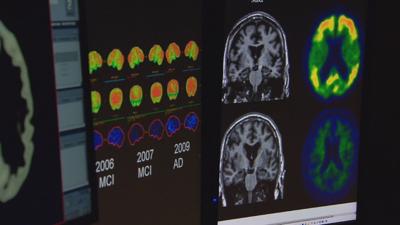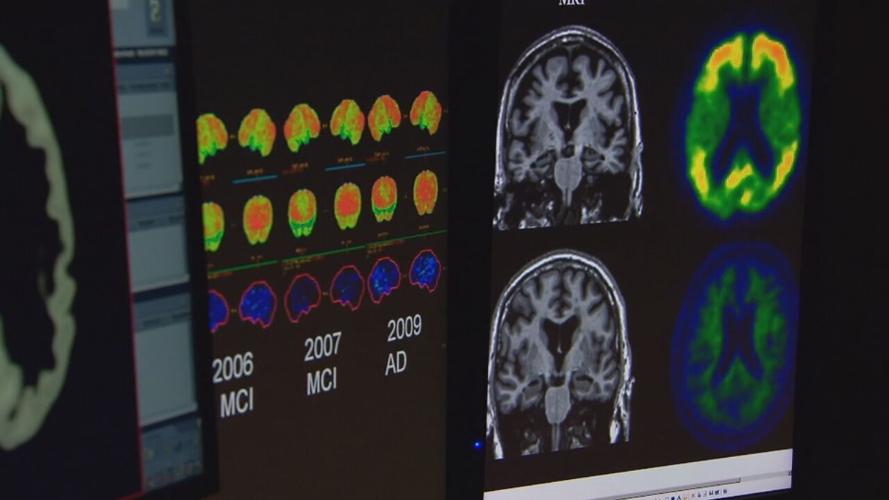LOUISVILLE, Ky. (WDRB) -- New blood tests could help doctors diagnose Alzheimer’s disease faster and more accurately, and now the new test is being used by local doctors.
Doctors at the Norton Neuroscience Institute Memory Center are currently using that test to help diagnose patients and get them on medications that could make a difference.
"We need to do a better job of identifying people very early on," said Dr. Greg Cooper, director of Norton Neuroscience Institute Memory Center. "When they are best possible candidates for these medications that we believe actually slow the progression of the disease."
It’s tricky to tell if memory problems are caused by Alzheimer’s. That requires confirming one of the disease’s hallmark signs — buildup of a sticky protein called beta-amyloid — with a hard-to-get brain scan or uncomfortable spinal tap. Many patients instead are diagnosed based on symptoms and cognitive exams.
Labs have begun offering a variety of tests that can detect certain signs of Alzheimer’s in blood. Scientists are excited by their potential, but the tests aren’t widely used yet because there’s little data to guide doctors about which kind to order and when. The U.S. Food and Drug Administration hasn’t formally approved any of them and there’s little insurance coverage.
More than six million people in the United States and millions more around the world have Alzheimer’s, the most common form of dementia. Its telltale “biomarkers” are brain-clogging amyloid plaques and abnormal tau protein that leads to neuron-killing tangles.
New drugs, Leqembi and Kisunla, can modestly slow worsening symptoms by removing gunky amyloid from the brain. But they only work in the earliest stages of Alzheimer’s and proving patients qualify in time can be difficult. Measuring amyloid in spinal fluid is invasive. A special PET scan to spot plaques is costly and getting an appointment can take months.
Only doctors can order the tests from labs. The Alzheimer’s Association is working on guidelines and several companies plan to seek FDA approval, which would clarify proper use.
Related Stories:
- Blood tests for Alzheimer's may be coming to your doctor's office. Here's what to know
- Doctors highlight Alzheimer's and Brain Awareness Month with new treatments
Copyright 2024 WDRB Media. The Associated Press contributed to this report. All Rights Reserved.














